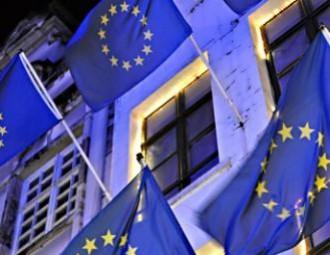Andrei Yahorau: EU has no idea what to do with Belarus
 photo by interfax.by
photo by interfax.by
“Temporary faze” is the first serious step in renovating EU-Belarus dialog that has happened over the last four years.
This week Dirk Schuebel, the Head of the Eastern Partnership Bilateral Division in the European External Action Service (EEAS), said that European Union and Belarus are ready to launch “Temporary faze” of cooperation – a new format of dialog that involves civil society. According to him, the parties want to analyze how they can “team up for modernization of Belarus”.
Andrei Yahorau, the Director of Centre for European Transformation, in the interview with the EuroBelarus Information Service, explained the crux of the new initiative.
What is the essence of the “Temporary faze” between EU and Belarus, which was announced by Dirk Schuebel, theHead of the Eastern Partnership Bilateral Division in the European External Action Service (EEAS)?
- “Interim faze” is the process of negotiations between EU and Belarusan authorities regarding the future legal phase of cooperation.
After the Eastern Partnership Summit in Vilnius relations between the EU and Belarusan authorities have somewhat improved, and now the parties try to agree on the format of their future relations. Still, European Union insists on the release of political prisoners as a condition for real cooperation.
For now it is hard to say what will be included in the construction of such dialog; it might be the updated version of “Conjoint interim faze”, which was prepared at the time of the previous thaw in 2010. Former document served as a substitution for the so-called “Action Plans”, which regulated relations with the countries who signed the Agreement son cooperation with the EU. Belarus didn’t sign such agreement; thus, cooperation with the EU remained unsettled. From the political point of view, “interim faze” is the first serious step in renovating dialog between EU and Belarus over the last four years. It is not a full-fledged dialog, but rather negotiations about the future actions of the two parties in case such dialog is resumed.
- The visit ofDirk Schuebel, the Head of the EaP Bilateral Division in EEAS, was unexpected and rather queer, especially with the events unfolding in Ukraine. It seems that he offers Minsk to develop relations with the dictatorship”, - stated Andrei Sannikau, politician and former presidential candidate at the 2010 presidential election in Belarus. A lot of Belarusans share his viewpoint. Is it possible that the EU repeats the mistake it made in 2010?
- If the EU doesn’t consider the mistakes in its policy towards the countries-members of the EaP as well as current situation in Ukraine and doesn’t stop building relations exclusively with the states, emphasizing institutional relations with the governments, signing agreements, then it will certainly be repeating its own mistakes.
- In March, during the visit of Gunnar Wiegand, the European External Action Service (EEAS) Director for Russia, Eastern Partnership, Central Asia Regional Cooperation and OSCE Countries and Jean Luc Demarty, the Director-General for Tradeof the European Commission, the ‘temporary faze” will be launched. Will it replace “European Dialog on Modernization” (EDM)?
- No, it won’t. These are parallel processes; and they are likely not to correlate with each other. European Dialog on Modernization will remain a consultant and expert area for preparing draft reforms, whereas its political constituent will be transferred to the format of “interim faze”.
- What is your assessment of EDM?
- The results are very poor: some improvements in the sphere of dialog on Bologna process, some suggestions of reforms… Still, EDM hasn’t turned into the area where the dialog between public and political forces, between the state and the EU about the future of the country is taking place. The political part of the dialog was brought to nothing, and we couldn’t have expected more form the expert dialog.
- The EU introduces still new forms of cooperation with Belarus. All this suggests that the EU doesn’t have a holistic approach to the possible ways of cooperation with “the last dictatorship in Europe”. Are full-scale relations at all possible, considering the fact that Belarusan authorities haven’t fulfilled the main demand of the EU, i.e. haven’t freed the political prisoners?
- Indeed, EU has no idea what to do with Belarus. EU policy is contradicting, inconsistent and far from being efficient. Firm stance of the EU on political prisoners has always been correct, as well as making the release of political prisoners the condition for the full-scale dialog. If the EU abandons its stance and develops cooperation with the Belarusan authorities in spite of the political prisoners, it will break any faith in European foreign politics.
-
03.01
-
07.10
-
22.09
-
17.08
-
12.08
-
30.09








































